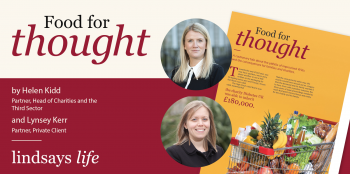A recent court decision in England awarded a third of a mother’s estate to her estranged daughter despite the money being left to animal charities in her Will. This ruling has prompted discussion over a person’s right to deal with their estate as they see fit including, the right to disinherit their own children.
The case involved a woman seeking an inheritance from her late mother’s estate. She had been written out of her mother’s Will after eloping as a teenager; a move of which her mother disapproved. Her mother subsequently wrote a Will in which she left her whole estate to various animal charities with which she had no connection.
The Court ruled that the daughter should receive one third of her late mother’s estate because the Will had not left “reasonable provision” for her daughter. Those analysing the case have suggested that the case might well change the position in England and Wales. While people may still be able to disinherit their children they may have to justify why and explain the connection to the beneficiaries they do choose to inherit their estate.
This leaves a certain level of uncertainty for testators in England & Wales, after all what is “reasonable provision” and who is a “valid” beneficiary?
Conversely the position in Scotland is very clear. Providing you have capacity to make a Will, you can disinherit your children and leave your estate to whomsoever you please - no matter how unconnected you are considered to be to that person or charity.
However, all children have legal rights. Legal rights entitle the children of a deceased individual to one third of the deceased’s moveable estate where there is a surviving spouse or civil partner, or one half, where there is not. A person’s moveable estate is essentially their assets apart from land and property such as a house or a flat.
There has long been a moral debate about whether or not a parent is obligated to provide for their child. Regardless of your opinion on the matter at least the position in Scotland remains clear.
If you would like more information about this subject or advice regarding your own situation, please contact one of our experts.





















